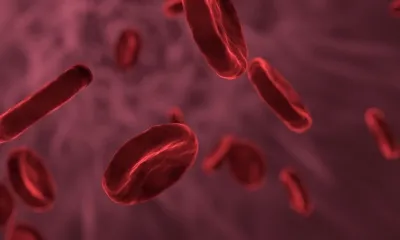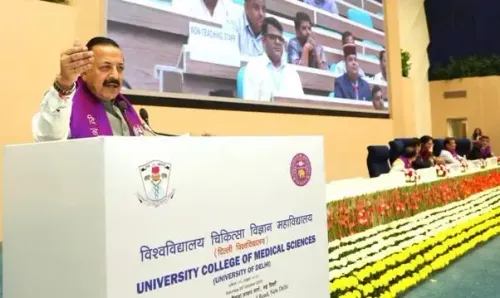Pioneering Gene Therapy for Haemophilia A Developed by Indian Researchers

New Delhi, Dec 11 (NationPress) In a remarkable achievement in the field of medicine, Indian researchers have developed the first-ever human gene therapy utilizing lentiviral vectors for individuals suffering from severe haemophilia A.
This groundbreaking therapy, created by the Centre for Stem Cell Research (CSCR) at Christian Medical College (CMC), Vellore—part of the translational unit of BRIC-inStem and backed by the Department of Biotechnology—has shown impressive outcomes.
Earlier this year, scientists at CMC-Vellore successfully carried out the nation’s inaugural human clinical trial focused on gene therapy for haemophilia A (FVIII deficiency).
The single-centre trial involved five participants aged between 22 and 41 years, yielding remarkable results.
According to the researchers, “The therapy resulted in zero annualized bleeding rates in all five participants while facilitating extended production of Factor VIII, which eliminates the need for repeated infusions.” This finding was detailed in a publication in the peer-reviewed New England Journal of Medicine.
The study observed this effect over a cumulative follow-up of 81 months, correlating Factor VIII activity to vector copy numbers in the peripheral blood.
Haemophilia A is a serious bleeding disorder characterized by the deficiency of clotting Factor VIII, significantly impairing patients' quality of life due to spontaneous bleeding episodes. Although it is considered rare, India has the world’s second-highest prevalence of haemophilia, with around 136,000 cases.
Current treatment methods necessitate frequent Factor VIII replacement therapy, which presents challenges such as high costs, difficulties in venous access for children, and low patient acceptance.
The innovative gene therapy technique employs a lentiviral vector to introduce a normal copy of the Factor VIII gene into autologous haematopoietic stem cells (HSCs).
The modified HSCs produce blood cells capable of generating functional Factor VIII over extended durations.
“After the gene therapy, participants were monitored for six months, and results indicated a strong correlation between Factor VIII activity levels and vector copy numbers in peripheral blood,” the researchers stated.
The researchers emphasized, “This achievement highlights the long-term efficacy and safety of the therapy, providing new hope for individuals with severe Haemophilia A.”
This groundbreaking study represents a significant advance in creating accessible and effective treatment options for resource-limited environments, paving the way for new strategies to manage previously untreatable conditions. The therapy is anticipated to move into a second phase of human trials soon.









